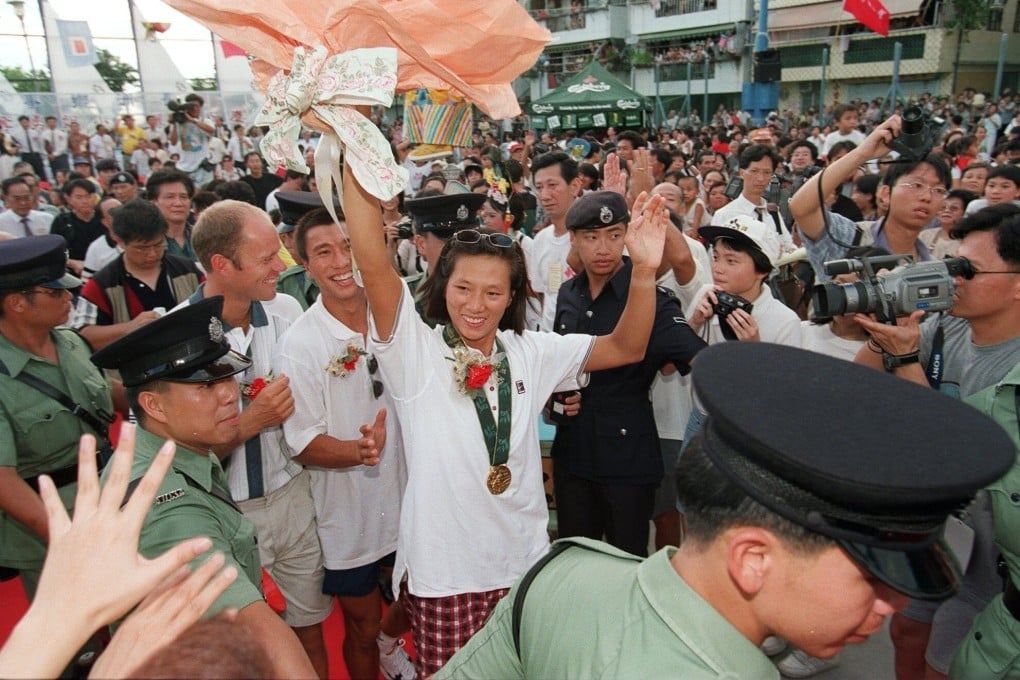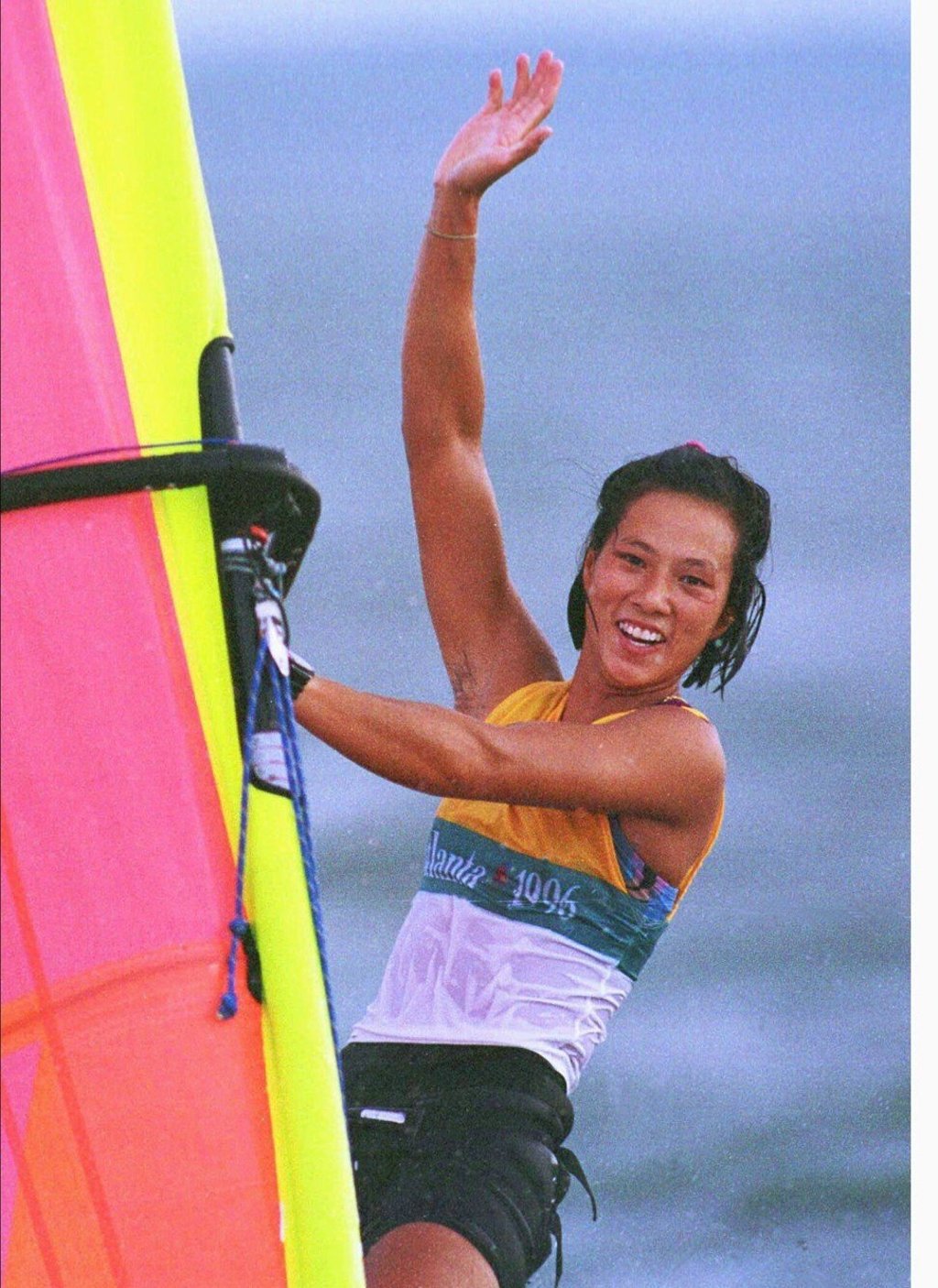San San at 50: Hong Kong’s only Olympic gold medallist on staying healthy and positive, and the importance of sport
- Windsurfer Lee Lai-shan, who won gold at the Atlanta 1996 Olympics, recently turned 50
- Still active but more of a badminton player these days, she believes sport plays a vital role in society, and all the more so during the coronavirus pandemic

When Lee Lai-shan turned 50 last month, the birthday celebrations for Hong Kong’s first and only Olympic gold medallist were very different from when she returned in triumph from the Atlanta Games in 1996.
“I had enough of all that sort of razzmatazz to last me a lifetime, although of course it was a great honour,” says the retired windsurfer, who prefers to play badminton these days.
“We just celebrated my 50th at our home in North Point. My husband and daughters had hidden my presents around the flat, so we started with a treasure hunt. The girls had written a very moving account of their lives for me, and they cooked dinner. It was the perfect birthday.”
In the years since becoming Hong Kong’s “Golden Girl”, Lee – known as San San – has devoted a lot more time to her family. However, she remains a passionate advocate of sport and its role in Hong Kong society, especially during the run-up to next year’s Olympics in Tokyo.

“Sport is not just good for your health, it can shape the way you manage your whole life,” Lee says. “I’d say that’s the most important message for everyone in Hong Kong right now, particularly as we are tackling the coronavirus.”